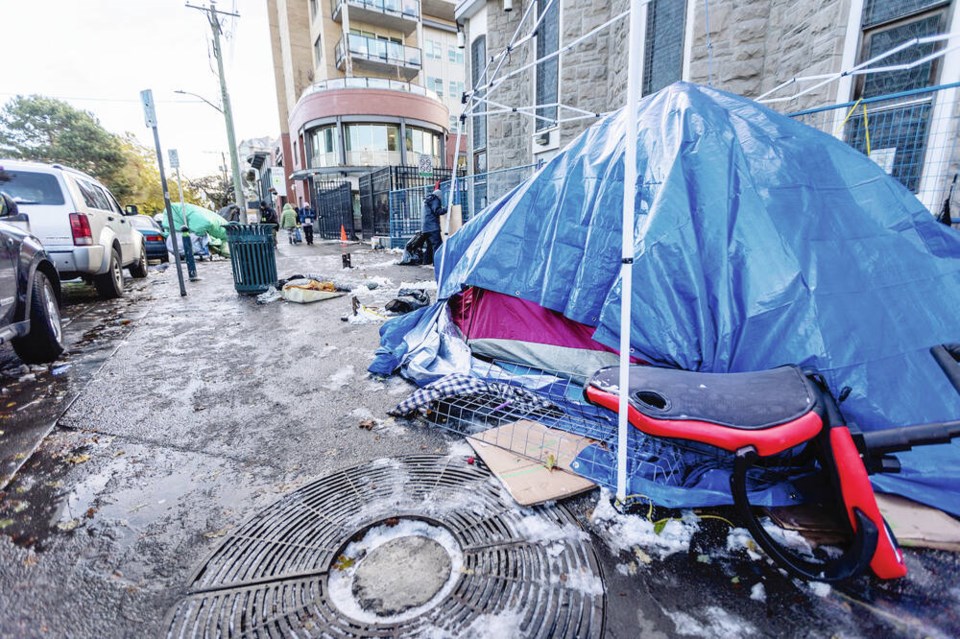A commentary by a former member of Victoria city council.
There should be no surprise to the revelation that disturbing findings are contained in an audit of B.C. Housing.
The provincial agency is responsible for funnelling millions of dollars and programs to service providers such as Cool Aid, Our Place and more.
During the pandemic, it was B.C. Housing that purchased or rented hotels/motels or the Save-on-Foods Memorial Centre, in an attempt to house those living in parks and on the street.
It was a massive undertaking; millions of dollars were spent in an attempt to satisfy increasing demand.
Many were helped. It was, after all, a righteous act. We need to care for those in society unable to care for themselves.
But sadly, those in B.C. Housing, together with advocates and service providers, interpreted “righteous” to mean “we are right, no matter what critics say.”
In Victoria, it was frustration from the start.
Pleas from communities around the emergency shelters supports were ignored.
B.C. Housing refused to triage people in the new centres, resulting in vulnerable populations integrated with those living with addiction.
Women were housed in buildings with known perpetrators of domestic and sexual violence.
So desperate to open up homes for the homeless, organizations with no experience in supportive housing were given dominion over buildings with disastrous consequences.
Armed criminal enterprises expanded into a network within some supported housing that placed vulnerable people at risk.
Complaints of increased crime and violence around supported housing were ignored. When evidence is presented, B.C. Housing would gaslight resident concerns with statements such as “it’s not the people living in the housing, it’s the people visiting.”
Or B.C. Housing would promise to speak with the service providers who operate the buildings.
Politicians were hesitant to criticize B.C. Housing for fear the tap of funds and rooms would be shut off.
Promises — all the way to David Eby, the housing minister at the time, were made and broken. When the broken promises were raised, the criticism was essentially faced with a shoulder shrug.
It was and, in many instances, still is a gong show.
The solution, it appears, is to throw money at the situation and expect all will be fine.
Of course missing from this plan is “deliverables” or “accountability.” There appears to be little actual supporting documentation on the hundreds of people housed.
We have no idea, out of the myriad of service providers, how many times the same individual was housed and by how many agencies.
We do not know where our community’s homeless originate.
Police argue anecdotal evidence suggests the majority are from “off Island.” Service providers argue their clients are local. And, as some advocates point out, what does it matter; the clients are homeless and need help.
It’s a fair point — but a client’s origin provides valuable information for research.
For example, if we truly know a majority of clients are from Greater Victoria, would it not serve us to find common causes of homelessness within a specific geographical area and work to mitigate?
If a majority of clients are from “off Island,” similar action could be taken to stem the challenges people face in their home communities. Simply to keep building spaces is a fool’s errand.
Accountability must also come from the service providers. It is disingenuous for service providers to tell communities “we can only control what happens in our buildings.”
Nonsense. Service providers should be mandated to establish integration programs to ensure their work does not negatively impact the neighbourhoods where they operate.
If this means funding staff to work outside of their properties to ensure sustainability, then so be it.
Clients could be empowered to ensure their homes are safe and meet reasonable community standards through program agreements.
B.C. Housing should make sure the buildings are not only responsible to the community at large, but also to their clients.
Only when there is true accountability will we know if we are effectively serving the populations that desperately need help.
>>> To comment on this article, write a letter to the editor: [email protected]



